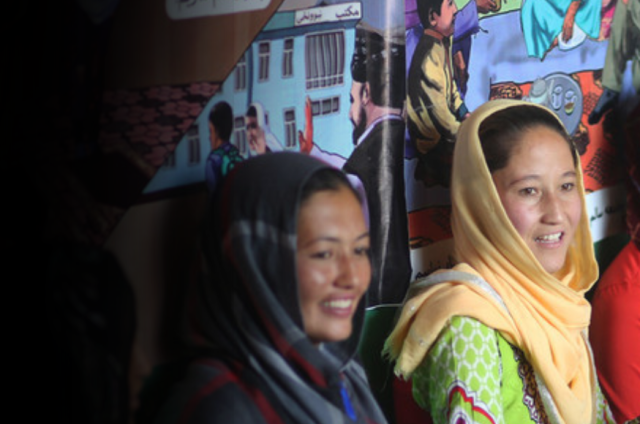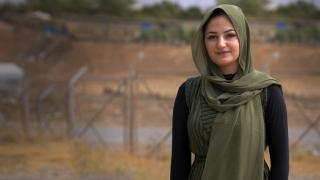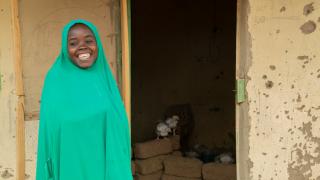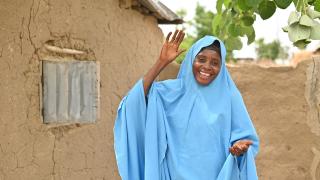The Impact of Conflict: Women and Girls' Education
Women's education and Illiteracy
How conflict limits women and girls' education
For so many of us, our time at school and university were some of the best years of our lives. Our memories are of learning, making friends and finding safety in our school halls and classrooms. But for countless women and girls living in conflict zones, these experiences were cut short – or denied entirely.
In fragile and conflict-affected settings (FCS), education is not just a luxury – it’s a lifeline. Yet girls are 90% more likely to be out of secondary school in these regions (compared with girls in non-FCS), and among the women who enrolled in our Stronger Women, Stronger Nations programme in 2023, only 33% had some level of literacy.
Not only does conflict disrupt education, it also deepens existing gender inequalities. As conflict persists, the gap between the literacy rates of men and women widens, leaving millions of women and girls without the skills necessary to care for themselves and their families, or rebuild their lives and communities after war.
These statistics reveal a harsh reality that we cannot ignore:
39 million More than 39 million girls are out of school due to disruptions caused by war and conflict
Source: UNESCO
90% Girls are 90% more likely to be out of secondary school in conflict-affected areas, than those in safe areas
Source: World Bank
2.5 Girls in conflict zones are 2.5 times more likely to be out of school than boys
Source: World Bank
How does conflict impact girls' education?
Conflict touches every aspect of daily life - and deepens pre-existing gender discrimination
1. Targeting educational institutions:
During conflict, schools and educational facilities are often targeted or destroyed through collateral damage, resulting in destruction, closures and a pervasive fear of attending school. This disrupts learning environments and denies girls the safe spaces they need to learn and gather.
2. Gender-based violence & displacement:
Conflict-related violence disproportionately impacts women and girls. Many are subjected to sexual violence, forced marriages and human trafficking, which ends their education prematurely. Displacement due to conflict also takes girls out of their schools at home – and displaced girls are then less likely to enrol again. Many may have to stay home to support their families when displacement adds additional burdens, such as financial stress.
Only 61% of refugee children have access to primary education, compared to an international average of 91% and, at secondary level, 23% of refugee adolescents go to school, compared to 84% globally. This is before we look at the gender divide, which shows that refugee girls at secondary level are only half as likely to enrol in school as their male peers, even though girls make up half of the school-age refugee population (source: UNHCR).
3. Financial stress:
Conflict often increases economic pressure on families. Men might be called to serve in the military, prices of basic food items and other necessities often skyrocket, and injuries and displacement reduce livelihood opportunities. This increases poverty and forces families to prioritise immediate survival over long-term education. In these situations, girls are typically the first to be pulled out of school to assist with household chores – and may even be married off to reduce the economic burden on their families.
4. Cultural and social barriers:
Conflict exacerbates pre-existing cultural and social barriers to girls’ education. In many conflict-affected areas, the belief that girls’ education is less important than boys' education is reinforced, leading to lower enrollment and higher dropout rates of girls in schools. When families are under financial stress and can only afford to enrol some children in school, boys’ education will often take precedence – and girls are more likely to be taken out of school to earn money. Limited resources in times of conflict might also mean limited access to period products, leading girls to be out of school for up to a week each month during menstruation.
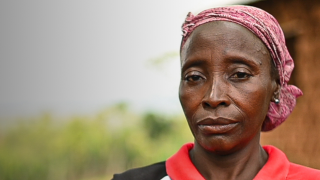
Meet Chisimdi
Chisimdi is a graduate of our year-long programme in Nigeria, working with other graduates to end child marriage.
Her community is affected by violence, instability and poverty. Chisimdi explains that families too often send their girls away to make and send back money, forcing them out of school. She says:
"We went to the traditional ruler and police to demand that a local law be enacted to prevent parents from trafficking their children. The law was passed and, so far, we have reported four people who were arrested and forced to bring the girls to our community ... We are optimistic that we can reverse parents’ mentality – trafficking children is not the only way to make money."
So, what's the impact?
And what can we do about it?
Social, political and economic power:
Interrupted education has a profound impact on the literacy rates of women and girls. Without access to education, their ability to read and write is severely limited, which restricts their social power; their ability to meaningfully and equitably participate in social, economic and political aspects of public life. This literacy gap impacts not only individual women, but also their children and the development of entire communities.
A lack of numeracy skills and other education limits women’s job opportunities, leading to long-term economic dependency and poverty. Women with little or no education are often confined to low-paying and insecure jobs, making it difficult for them to break the cycle of poverty and improve families’ living conditions.
On our year-long Stronger Women, Stronger Nations programme, we teach women literacy and numeracy skills, a marketable vocational skill and how to run/improve their own business, how to save, to understand their rights and decision-making power, and how to care for their physical and mental health.
The numeracy sessions have helped me to have confidence among literate people because I can now identify numbers and letters. I do modern banking transactions with my ATM card. My husband is so proud of me that he involved me in family decision-making unlike before.
Personal safety:
Less educated women and girls are more vulnerable to exploitation, trafficking and forced marriages. Without education, they lack the knowledge and resources to protect themselves and their children, making them easy targets for abuse and exploitation.
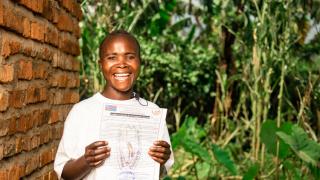
Meet Angelique
After graduating our year-long programme, Angelique was determined to realise her rights and use her voice to advocate for others. She convinced her husband and community members to respect her and other women’s right to land ownership, a key step in increasing their economic power, and has also supported women in her community suffering intimate-partner violence. She says:
"With the communication skills I learnt, I was able to help a neighbour get to safety who was being beaten and threatened by her drunk husband; the next morning we all sat down together and I gave them advice. From that day on, I’ve never seen him beat her again."
The next generation:
Women with less education are less able to care for their children’s health and wellbeing, support their children with their learning, or advocate for their children’s rights. Girls of uneducated mothers are also less likely to complete their own education, perpetuating the cycle of poverty and gender inequality.
Graduates of our year-long programme often report that continuing their education underscores the importance of educating their children – and, specifically, the value of girls’ education. This leads to better health and economic outcomes for future generations.
I dream that my children can go to school and that they learn to be independent. And I dream of a future that has no wars.
Before the programme, I used to care less about my daughter’s education … My daughter now attends school regularly, and has improved her knowledge.
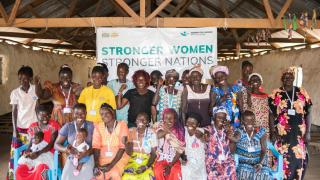
Our programme
Stronger women, stronger nations
Our Stronger Women, Stronger Nations programme builds women’s capabilities in four key areas: earning and savings; rights and decision-making; health and wellness; and fostering support networks.
Women receive hands-on vocational training in a variety of sectors and are supported to start small businesses, build networks, and take on leadership roles in their communities.
Keep reading
Amina
subtitle:
In Afghanistan, Amina* dares to stand up for women’s rights. Women have been virtually erased from public life over the past two years: banned from parks, gyms, restaurants, most jobs and education. Opposing these restrictions is incredibly dangerous, but Amina dares to keep teaching in our training centre. She braves the constant scrutiny of government authorities and she dares to spread the word that education should be the right of every woman and girl.
*Although the story is real, for reasons of security and privacy, we're not using Amina's real name or photograph.
Suraiya
subtitle:
"When I found myself in the programme, I was happy. Now I want members of my family to also benefit from this programme."
Hadiza
subtitle:
Changing cultural norms is not an easy task, especially when you are a woman in a remote village in Nigeria. But Hadiza is a testament to women’s power and strength. #SheDares to fight for women’s rights, even when it threatens her personal safety. This is her story.

